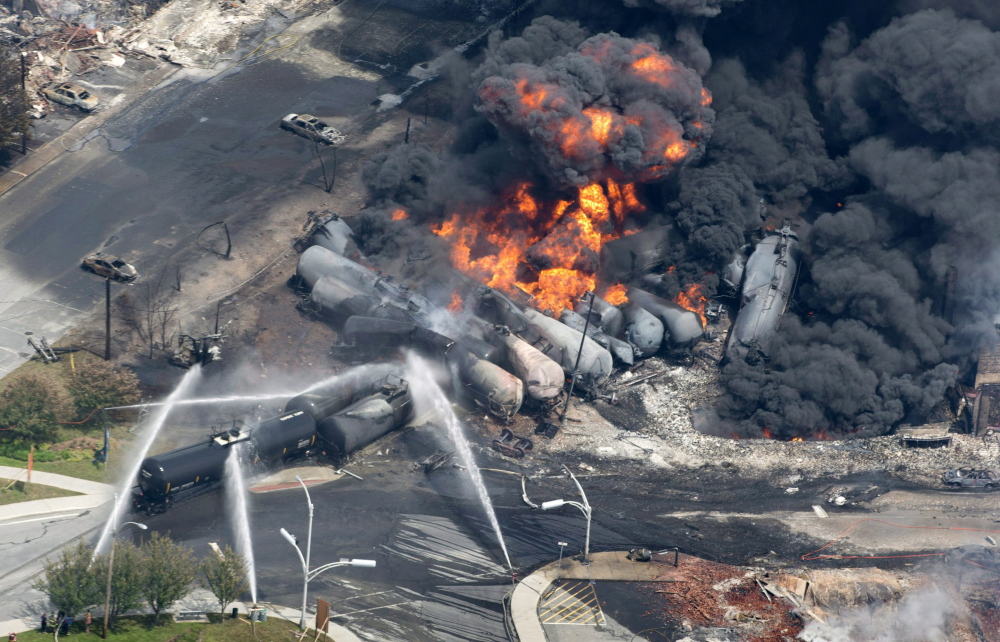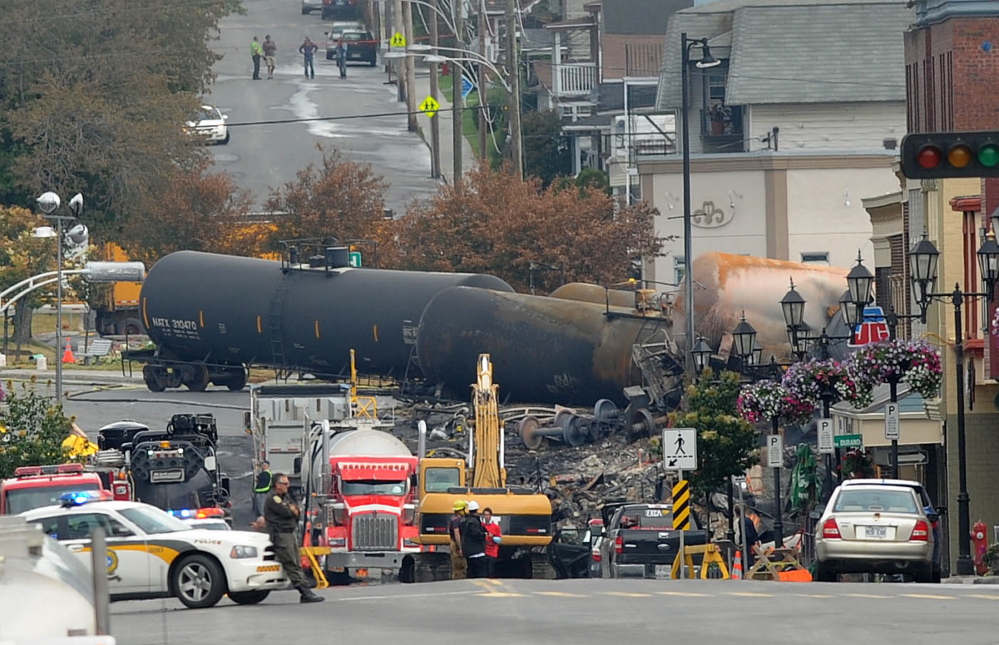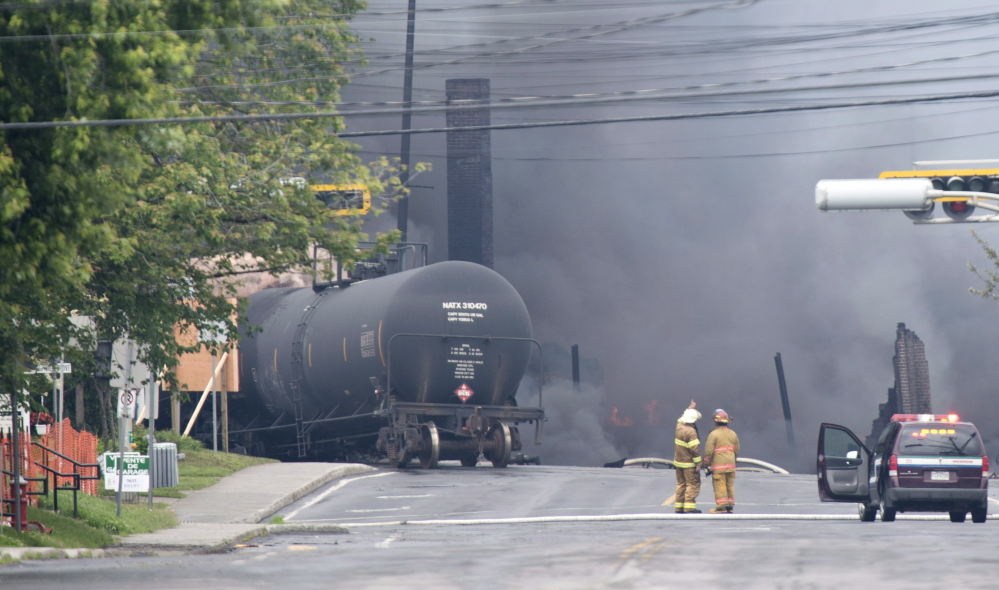A series of proposals for new safety regulations aimed at making crude oil rail transportation safer were lauded as a step in the right direction by local officials worried about the dangers of freight trains carrying thousands of gallons of flammable oil through their communities.
The U.S. Department of Transportation’s proposal would require railroads to phase out or modify rail tank cars over the next two years and impose new speed limits and breaking requirements for trains carrying flammable products. It would apply to trains of more than 20 cars, which a local advocate of stricter regulation said could be too much leeway for the railroads.
“This proposal puts more meat on the bones as to how we get to a safer place,” said Oakland Town Manager Peter Nielsen, who has called for tougher federal rules. He said the proposal pertains to trains carrying 20 or more cars, however, and he’d like to see it also cover shorter trains or it “may leave us unprotected.”
As president of the Maine Municipal Association, Nielsen has called for a ban on DOT-111 rail cars, which have been criticized as being too easily punctured. The proposed rules would give railroads two years to upgrade or get rid of the cars.
The federal rule making comes after recent derailments involving railroad tank cars, including the train deraliment in Lac-Megantic, Quebec, last summer that killed 47 people and leveled much of the downtown.
Fire crews from Franklin County were among the first public safety departments that responded from outside Quebec to the Lac-Megantic inferno.
“It’s a great start, there were lots of points covered,” Rangeley Fire Chief Tim Pellerin said after reading the recommendations. “It’s better than what we have now.”
Pellerin directed the Franklin County contingent in Lac-Magantic while the fire, fueled by 72 tankers of crude oil, burned out of control.
Pellerin said more rail fire training for rural officers is still needed. In April he testified before a Senate transportation appropriations subcommittee in support of $40 million in federal money to train fire departments in regions with heavy oil train traffic.
“I think the biggest part is we are prepared for the residential, common everyday emergencies,” Pellerin said in his testimony in April. “We’re not prepared for a fire like this.”
Nielsen has also been in Washington on the issue, meeting with U.S. Transportation Secretary Anthony Foxx about the need for stricter safety regulations. Oakland is crossed by several rail lines and was the scene of a railroad tanker car derailment and fire in 1983.
Nielsen said said Wednesday that a proposed requirement that the railroads give notice of the transportation of large quantities of oil will keep area communities on guard.
“The notification to state emergency response is welcoming,” Nielsen said. “It helps having more knowledge about what is passing through our communities.”
Kaitlin Schroeder contributed to this story.
Jesse Scardina — 861-9239
Twitter: @jessescardina
Copy the Story LinkSend questions/comments to the editors.





Success. Please wait for the page to reload. If the page does not reload within 5 seconds, please refresh the page.
Enter your email and password to access comments.
Hi, to comment on stories you must . This profile is in addition to your subscription and website login.
Already have a commenting profile? .
Invalid username/password.
Please check your email to confirm and complete your registration.
Only subscribers are eligible to post comments. Please subscribe or login first for digital access. Here’s why.
Use the form below to reset your password. When you've submitted your account email, we will send an email with a reset code.